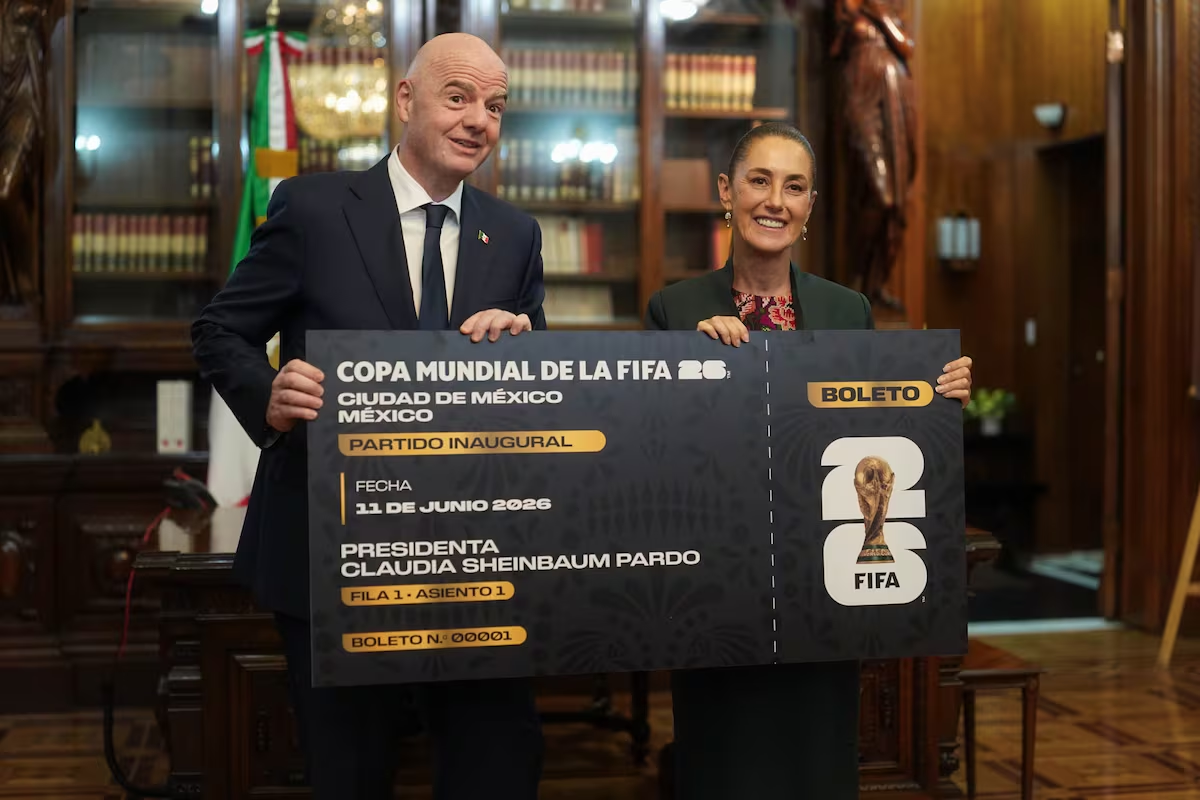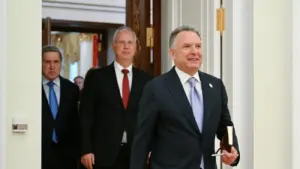
The International Football Federation (FIFA) and its proposed clubs will not pay a burden of taxes during the matches of the 2026 World Cup which will be played in Mexico City, Monterrey and Guadalajara. This was included in the Federation Income Law of 2026. One of its transitional articles provides that companies that “participate in the organization, development and carrying out of activities related” to next year’s World Cup, which Mexico co-organizes with the United States and Canada, are exempt from paying taxes. Of the three countries, only the first has granted a full national exemption to FIFA. The tax agreements reached by the United States and Canada are not comprehensive and are made at the national, state and local levels.
“It was an agreement signed with FIFA, in 2015, at the time of (Enrique) Peña Nieto,” President Claudia Sheinbaum said a few days ago during her daily press conference. “These waivers were signed so that it was an already established contract with Mexico; we changed some of those features that were signed at that time, but it was a signed contract and so it’s established in the law because that’s the way it has to be,” the president said. The World Cup will be held in June 2026 and its main venue will be the United States, with 78 matches, plus 13 matches in Canada and the same number in Mexico.
This exemption stands out more because Mexico’s government is immersed in a campaign to achieve higher tax collections without initiating tax reform. The strategy is to increase specific taxes and narrow the spaces and possibilities for money mismanagement. In a scenario of economic slowdown and with the increase in spending on social programs, a blank check is given to FIFA and to those who decide on the organization throughout the national territory.
In Mexico, according to the Sports Journalism Network, Senator Raúl Morón Orozco, from Morena ESPN“is intended for all companies that directly participate in the organization of the World Cup. To all those that participate, to all companies that promote the World Cup. Also to television broadcasters that broadcast or report on the World Cup and to all hotel and travel groups, etc..”
According to the transitional provision, it is FIFA itself that must present to the SAT “the natural and legal persons who will participate in the organization and celebration” of the World Cup who will benefit from this regime. Mark one exception: companies that are on the Tax Administration Service’s blacklist for having tax debts will not be eligible for this exemption.
In 2022, ESPN managed to access a copy of the 93-page document in which Enrique Peña Nieto’s government committed itself to FIFA. Titled “Government Guarantees Related to the 2026 FIFA World Cup,” it is signed by Alfonso Navarrete Prida, then Cabinet Secretary, and benefits the federation, FWC 2026 and its subsidiaries, regardless of whether or not they have tax domicile in Mexico, as well as the FWC Legacy Fund 2026. The document was signed in 2015, three years before FIFA awarded the 2026 World Cup to Mexico, United States and Canada.
In the United States, FIFA negotiated tax exemptions separately with each of the 11 host cities, almost years after the World Cup was awarded. In Atlanta, Georgia, it was 2022 when the extension of an existing tax exemption on game tickets was approved, without any public information on additional exemptions. Atleticothe sports supplement of The New York Timeshad access to New York’s host city agreement, in which FIFA calls for “good faith non-refundable tax minimization” and states that all municipal taxes will be covered by the host city.
A special case is the city of Santa Clara, in the state of California, where Levi’s stadium is located and where six matches will be played. There is an agreement signed in 2025 that clarifies that “the city has not agreed to subsidize any law, tax or fee in connection with World Cup events and reserves the right to approve or reject any proposal.” According to state media reports, the City Council spent more than a year negotiating with FIFA to “protect the city’s finances and taxpayers.” All obligations are transferred to the Bay Area Host Committee, a non-profit organization dedicated to attracting sporting events to the San Francisco area, because they allegedly made a series of deals with FIFA without the knowledge or permission of the City Council.
In Canada, this tax treatment led to social unrest, after deals between the cities of Vancouver and Toronto with FIFA through access to information requests came to light. The agreement is similar to those made public in the United States: municipal taxes paid by the city and minimization of good faith non-repayable taxes, as well as providing FIFA offices with the highest quality equipment. The current mayor of Toronto, Olivia Chow, has repeatedly criticized the leonine conditions of these agreements.





